


Let’s discuss how virtual reality is making a difference in dementia care. Virtual reality (VR) is stepping up to make a difference in dementia care throughout the United States.
VR uses innovative computer programs to make users feel like they are in another world.
Seniors with dementia wear special goggles, see 3D environments, hear corresponding sounds, and some even feel touch sensations.
This powerful method allows parts of the brain less affected by dementia to come alive, acting as a digital gym for the brain.
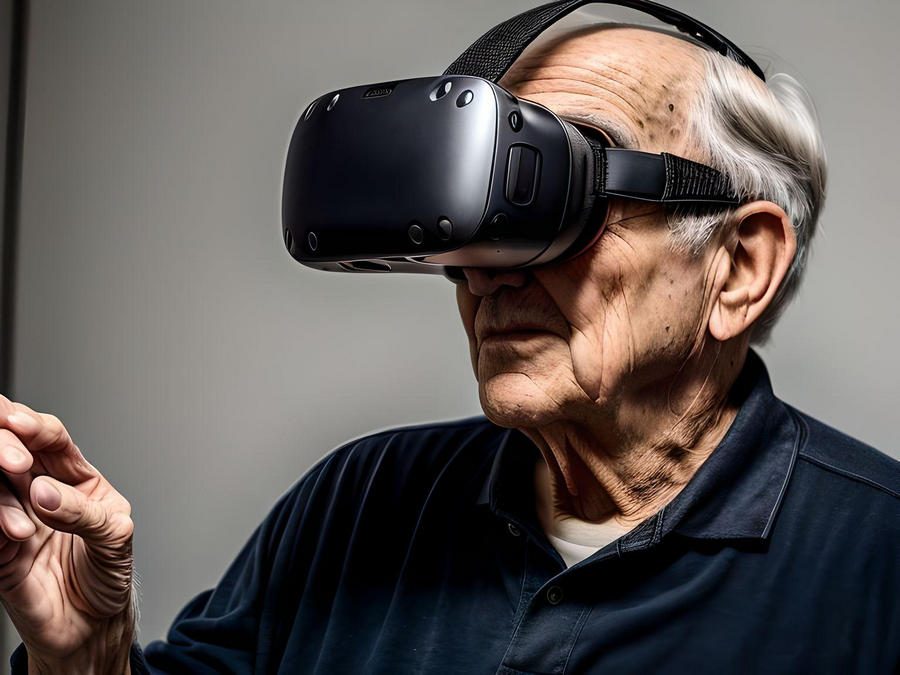
Virtual Reality, or VR, uses computer technology to create a simulated, three-dimensional world. Patients see this world through special goggles, and many systems add touch sensations and spatialized sound, making the experience incredibly immersive.
This immersive environment can help seniors with dementia feel less lonely and more engaged, providing a new realm to explore and fight isolation and depression.
VR has the potential to activate healthier regions of the brain through multisensory stimulation. When dementia damages areas responsible for memory and clear thinking, VR can strengthen neuron connections in other parts, boosting the brain’s processing power.
This is due to neuroplasticity, the brain’s ability to form new connections, which can help rewire the brain, allowing it to bypass damaged zones.
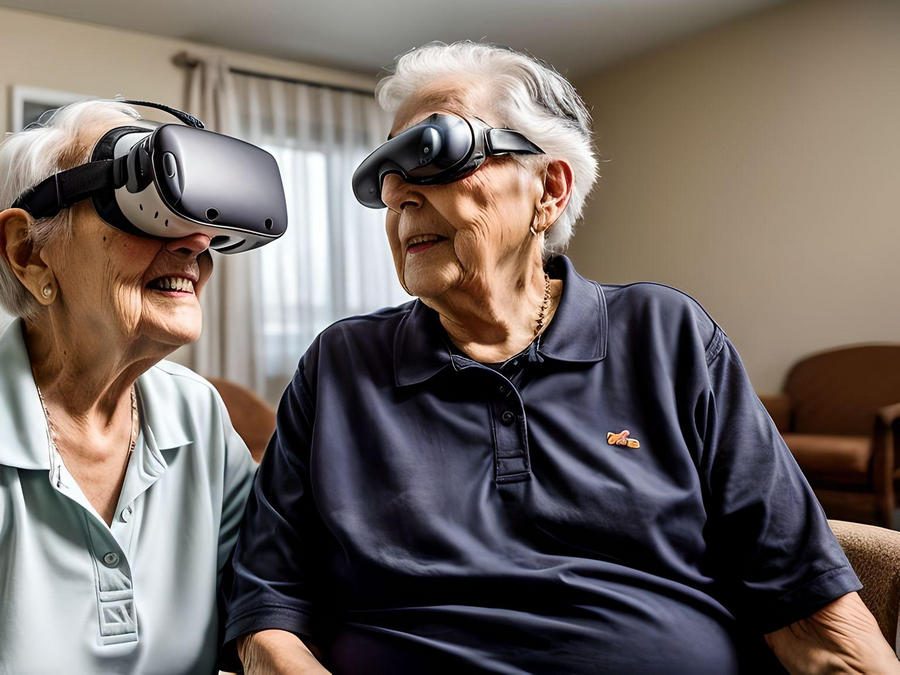
Studies show that VR can potentially enhance memory, focus, puzzle-solving, and speech in those with dementia. For instance, a VR museum tour allowed residents to retain more information about the exhibits compared to those who viewed images on a 2D screen.
These benefits are due to VR’s interactive and immersive nature, making learning more engaging and exciting.
VR can enable seniors to revisit meaningful experiences, triggering feelings of nostalgia and positivity. This concept benefits seniors in middle-stage dementia, helping improve moods and behaviors.
Companies like Rendever are developing VR experiences to take users on virtual trips back in time, enhancing reminiscence therapy.
When it comes to reminiscence therapy using VR, personalized experiences are crucial. Tailoring experiences to individuals’ interests and backgrounds fosters more robust emotional engagement and results.
Virtual travel opens up new possibilities, allowing seniors to visit famous locations, interact with nature, and travel abroad, all within the safety of their rooms.
Research indicates that VR can substantially boost mood and engagement. Virtual nature walks have been observed to increase cheerfulness and decrease feelings of boredom and solitude among seniors with dementia.
After such VR experiences, caretakers have noted increased participation and active thinking among residents.
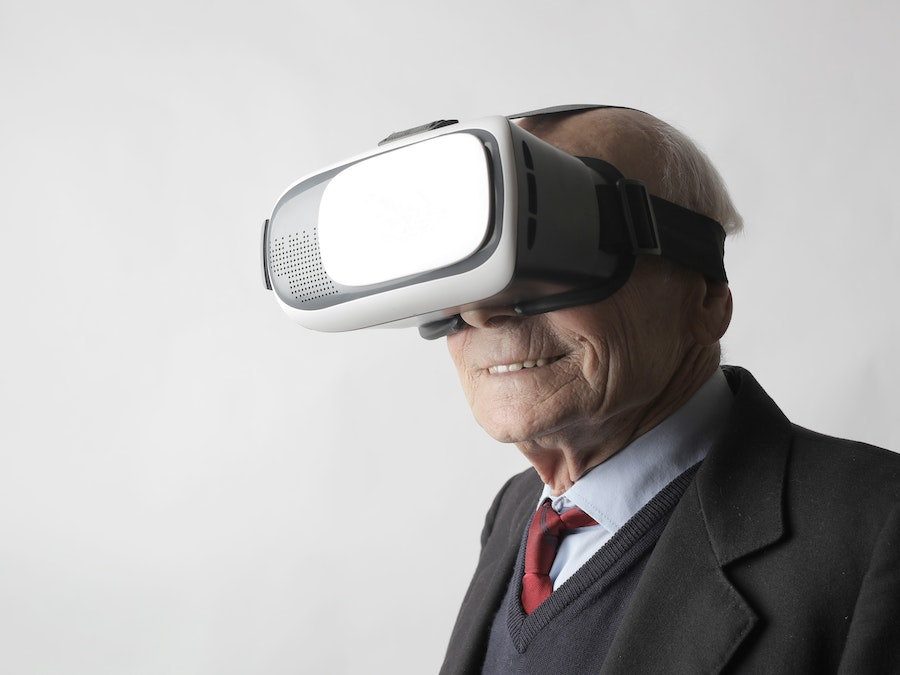
The most effective VR programs leverage multisensory storytelling and design, incorporating scents, wind, and moving seats for added realism. “Serious games,” designed primarily for education or health applications, are also being adapted to feature progressively complex tasks across different cognitive areas.
Names like MindMaze are pioneering in creating these games, aiming to assist people with brain and nerve issues.
Researchers are focusing on developing customized VR experiences, particularly for dementia care. For instance, scientists at the University of Wolverhampton designed an engaging VR cognitive assessment to test various cognitive functions within a virtual environment.
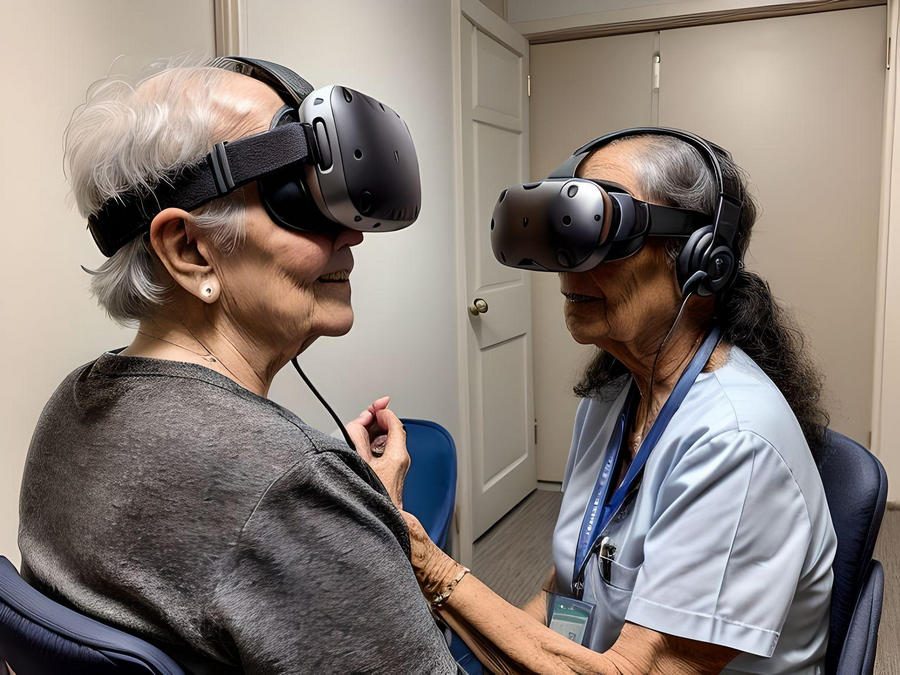
While VR systems can provide immersive experiences, the high costs and need for technical expertise are barriers for many households and care facilities.
Besides, ensuring the safety and comfort of seniors, especially those with limited mobility, is also a concern.
Motion sickness and disorientation are possible side effects that need careful consideration and user testing.
The lack of standardization around optimal software, hardware, content, and usage protocols is another challenge in implementing VR for dementia.
More academic research, medical oversight, and possibly government regulation could spur innovation and standardization, ensuring a more significant therapeutic impact.
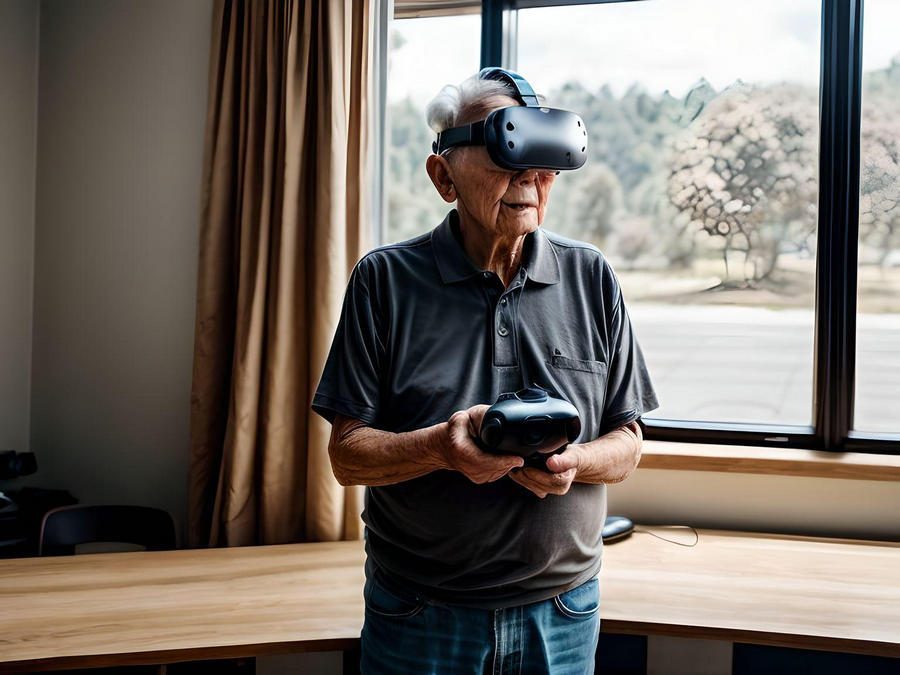
Despite the challenges, the future seems bright for VR treatments in dementia care. VR technology is continuously improving and becoming more user-friendly.
Scientists are exploring ways to implement VR in medicine to make dealing with ailments like dementia easier and more effective.
As the world’s population ages, developing intelligent solutions to tackle the growing cases of dementia is crucial.
With the aid of dedicated caregivers and technological advancements, VR stands as a beacon of hope in providing better and more respectful long-term care for residents with dementia.